Retirement class of 2022 - Dumoulin, Brennauer, Gilbert, Nibali and Porte leave the peloton
A new generation takes centre stage as veterans hang up their wheels
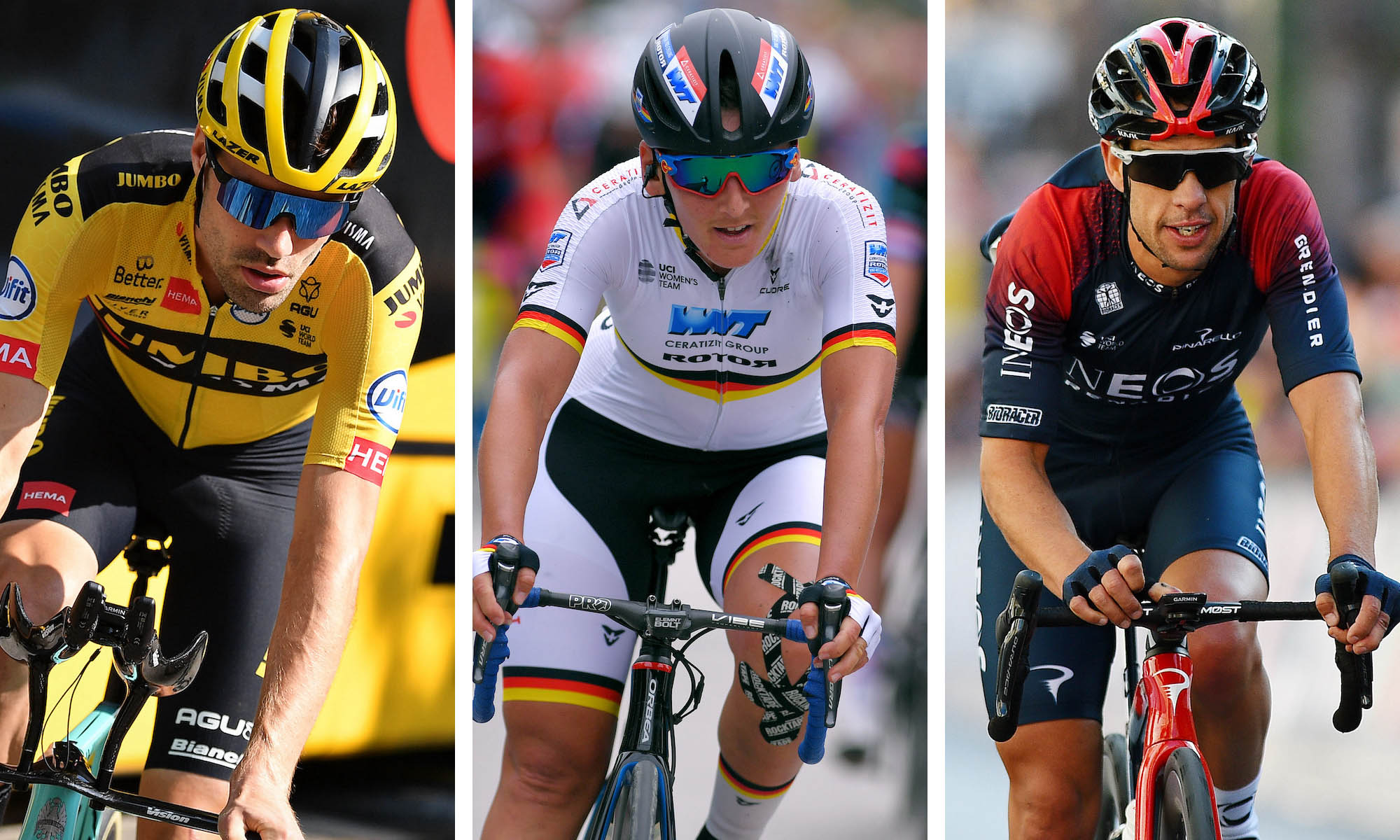
The end of the cycling year is always marked by a number of retirements, but few seasons in recent memory have seen quite so many high-profile riders exit the stage at the same time.
The retirements of Vincenzo Nibali and Alejandro Valverde heralded the end of an era, but the changing of the guard was not limited to Italy and Spain. In Belgium, Philippe Gilbert called time on his glittering career, while Richie Porte, Tom Dumoulin and Lisa Brennauer were also among the grandees of the men’s and women’s pelotons who have opted to retire this winter.
Cyclingnews casts a look back at the careers of a dozen of the most notable riders to hang up their wheels in 2022.
Tom Dumoulin
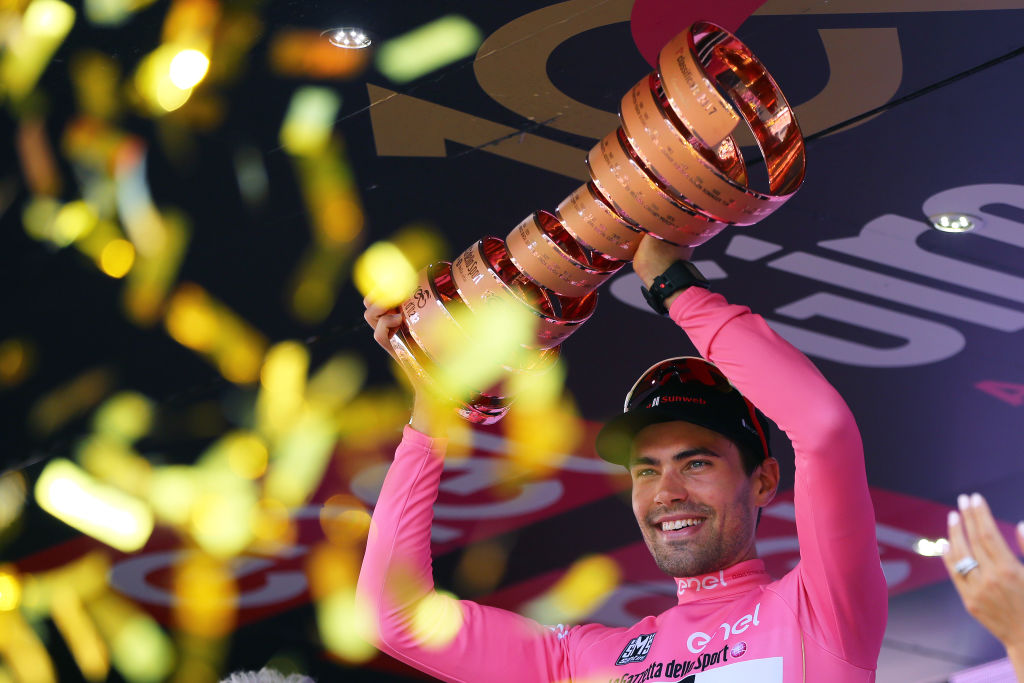
Tom Dumoulin formally hung up his wheels in August, but, in hindsight, the Dutchman had been edging towards retirement in instalments ever since he crashed out of the 2019 Giro d’Italia in the opening week in Frascati.
A move from Sunweb to Jumbo-Visma at the end of that season offered a chance of a reboot, but the pandemic-interrupted 2020 campaign did little to smooth Dumoulin’s increasingly uneasy relationship with his sport, even if seventh place on that year’s Tour, ridden in support of Primož Roglič, showed that his physical ability remained largely intact.
The ever more onerous mental demands of top-level sport were taking a toll, however, and Dumoulin opted to take a sabbatical at the beginning of 2021, citing burnout. He returned sooner than anyone anticipated and took silver in the time trial at the Tokyo Olympics, prompting him to return to targeting Grand Tours in 2022. The Giro, unsurprisingly, was the chosen venue, but a nagging back injury forced him to abandon at the end of the second week.
A few days after the Giro ended, Dumoulin announced he would retire after the Wollongong World Championships, but he instead opted to call time on his career in August. “For a while now, there has been a disbalance between my 100% dedication, everything I do and sacrifice for the sport, and what I subsequently get out of it in return,” Dumoulin wrote earlier this year.
Get The Leadout Newsletter
The latest race content, interviews, features, reviews and expert buying guides, direct to your inbox!
Dumoulin leaves an imposing palmarès behind him, with the stand-out victory coming at the 2017 Giro d’Italia when he became the first Dutchman to win a Grand Tour since 1980. The foundations of that win were laid in the Montefalco time trial, but the key moment came when Dumoulin responded with such poise to his unexpected natural break in the shadow of the Stelvio in the final week.
He ended that season with a time trial world title, but his athletic achievements in 2018 were perhaps even greater as he placed second overall at both the Giro and the Tour de France, singling himself out as the man most likely to break Team Sky’s long-standing dominance in July. That never quite materialised – that crash in Frascati on stage 4 of the Giro d'Italia in 2019 perhaps proved to be a sliding doors moment – but Dumoulin’s graceful style on the bike and his thoughtful interventions off it made him one of the defining stars of his era.
The 31-year-old isn’t the first rider to exit the stage ahead of his time, and he won’t be the last, not when the issue isn’t so much one of physical strength as of mental bandwidth. In discussing his burnout so publicly and honestly last year rather than staying silent, Dumoulin performed his sport a considerable service, though it remains to be seen if anybody was truly listening.
Dumoulin has had an offer to work with the management of Intermarché-Wanty, but he is in no hurry to return to the sport for time being. He attended the Wollongong Worlds as a fan before travelling alone through Fiji and Costa Rica for six weeks. “I’m starting with a completely blank canvas, and I have no idea the direction that I'm going,” Dumoulin said. “And I'd like to leave it that way. Because it feels good.”
Lisa Brennauer
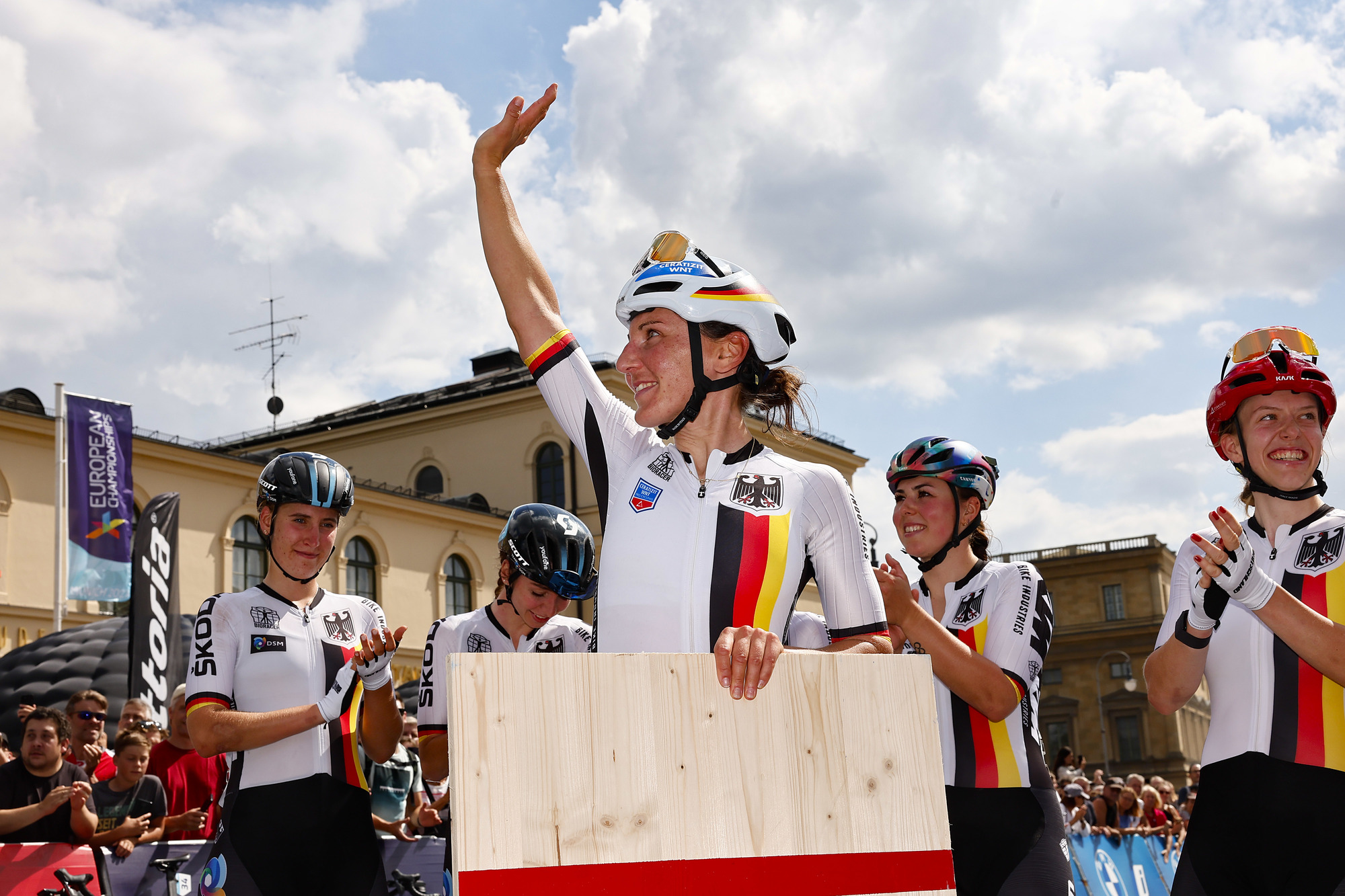
"It was the perfect ending for me," is what Lisa Brennauer said when she officially called time on a 14-year sparkling career while on home soil at the European Championships in Munich in August.
Feeling in control of her retirement and the next phase of her life was important to Brennauer, who was delighted to have had the opportunity to compete at the rebirth of the women's Tour de France Femmes avec Zwift in 2022.
Competing in France in July with her trade team Ceratizit-WNT marked the final road event of her career while racing with the German National team at the European Championships was a final and more personal farewell to her career in both road and track cycling.
She secured a total of 58 career victories, making her one of the most successful cyclists of her generation, excelling in stage races, one-day events, team time trials, and on the track.
Her 14-year career began on the road with trade team Equipe Nürnberger Versicherung in 2009 and she went on to race for teams Hitec Products, Specialized-lululemon, and its versions under title sponsors Velocio-SRAM and Canyon-SRAM, along with teams Wiggle High5 and the last four years at Ceratizit-WNT.
She is a nine-time German Champion on the road, won the individual time trial world title in 2014, along with titles in the Mixed Team Relay at the World Championships (2021) and European Championships (2020) as well as three World titles in the Team Time Trial (2013-2015).
On the track, Brennauer won the Olympic title in the Team Pursuit in Tokyo and European titles in Individual and Team Pursuit in 2018, 2021 and 2022.
In addition to stage race wins in the Thüringen Ladies Tour, Boels Ladies Tour, Women's Tour, Festival Elsy Jacobs and two titles at the Challenge by La Vuelta, Brennauer earned podiums in major one-day races like the Tour of Flanders and Gent-Wevelgem.
Although she only secured one road victory in her final season, it was a fitting one, with the rider ending her career as the German Time Trial Champion.
Philippe Gilbert
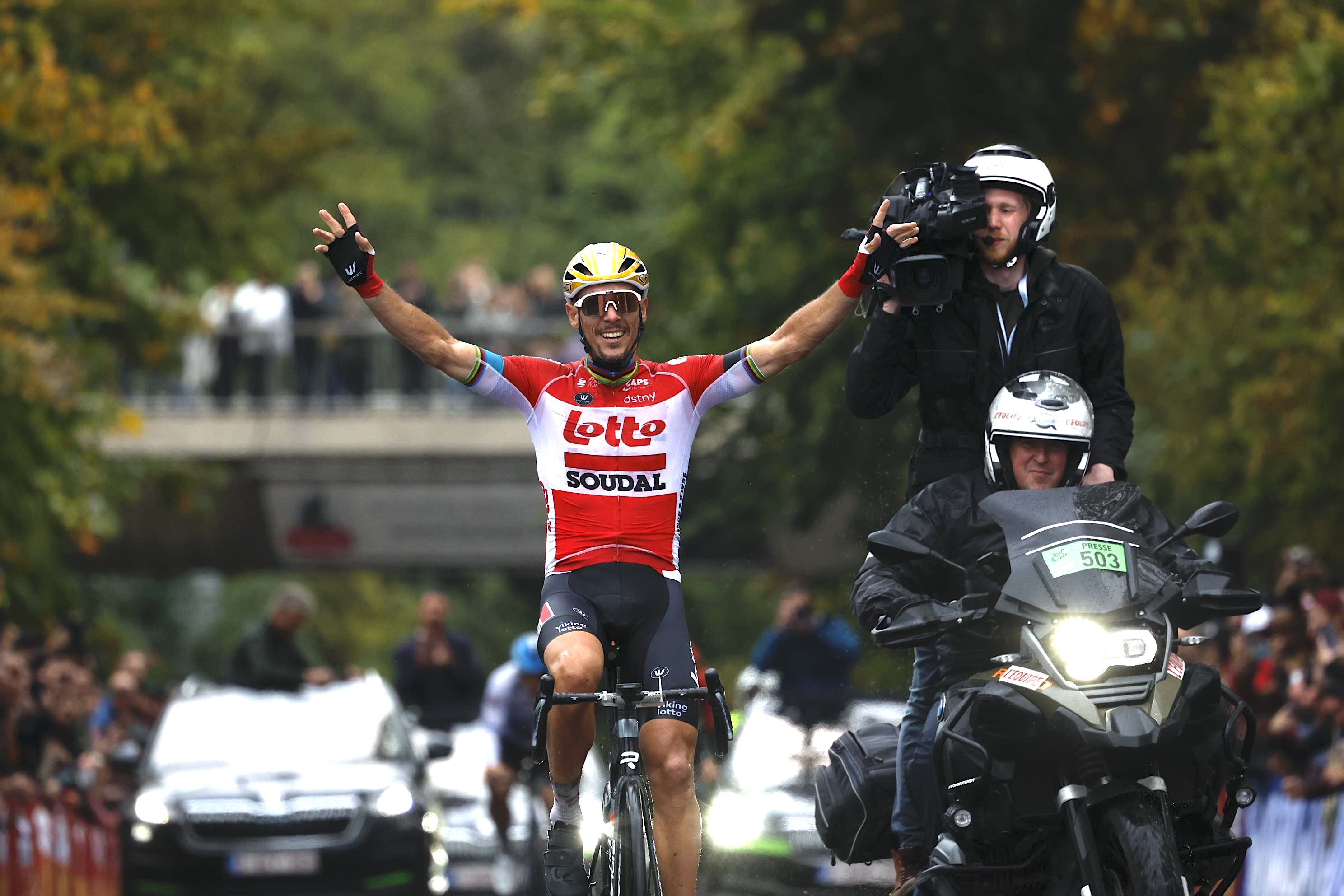
Philippe Gilbert’s palmarès is composed of some 80 wins, including a world title and victories in four Monuments, but the triumphs tell only a part of the story. For two decades, Gilbert was consistently in and around the very summit of his sport, reinventing himself several times in the process.
He turned professional with Marc Madiot’s La Française des Jeux in 2003, enjoying a break-out win at Omloop Het Volk three years later. When he repeated the feat with a 50km solo effort in 2008, it marked his formal graduation to the top tier of Classics riders.
Gilbert’s years of plenty came in his first tenure at Lotto. He caught fire in late 2009 with an Autumn sequence of wins that included Paris-Tours, Gran Piemonte and Il Lombardia. In 2010, he scored the first of four Amstel Gold Race wins and added another at Il Lombardia, but the annus mirabilius came in 2011, when he scored some 18 victories, including an Ardennes hat-trick and the opening stage of the Tour de France.
From those heights, Gilbert plumbed the depths for much of his opening season at BMC only to hit form right at the death, bounding up his personal fiefdom of the Cauberg to win the World Championships at Valkenburg. His year in the rainbow jersey was largely subdued, but Gilbert still enjoyed his moments at BMC, including another Cauberg burst in 2014 and a sparkling brace of stage wins at the 2015 Giro.
Gilbert’s finest hour, however, came after his transfer to QuickStep at the age of 34. At BMC, he had largely eschewed the cobbled Classics, with the team preferring to put him and Greg Van Avermaet on a separate programme.
At QuickStep, Gilbert returned to the hellingen with a vengeance, winning the 2017 Tour of Flanders with a remarkable 56km solo effort. The supposed individualist would go on to form an integral part of QuickStep’s self-styled ‘Wolfpack,’ helping Niki Terpstra to win the 2018 Ronde before helping himself to victory at the 2019 Paris-Roubaix. Gilbert’s raw strength had carried him to that startling haul in 2011, but his cunning was now making much of the difference in his late 30s.
In the final phase of his career, Gilbert returned to Lotto and attempted to complete the full set of Monuments by winning Milan-San Remo. That last heist never came off, but Gilbert remained a point of reference in the peloton as one of its most vocal advocates for improved rider safety. On hanging up his wheels, he was even approached by Lotto Soudal to take over as team manager. “It’s maybe a job I could take on later on in my life when I have what’s needed for it, but I like doing things well and I don’t yet feel ready,” Gilbert said after rejecting the offer.
The man always had a sound sense of when to pick his moment.
Sonny Colbrelli
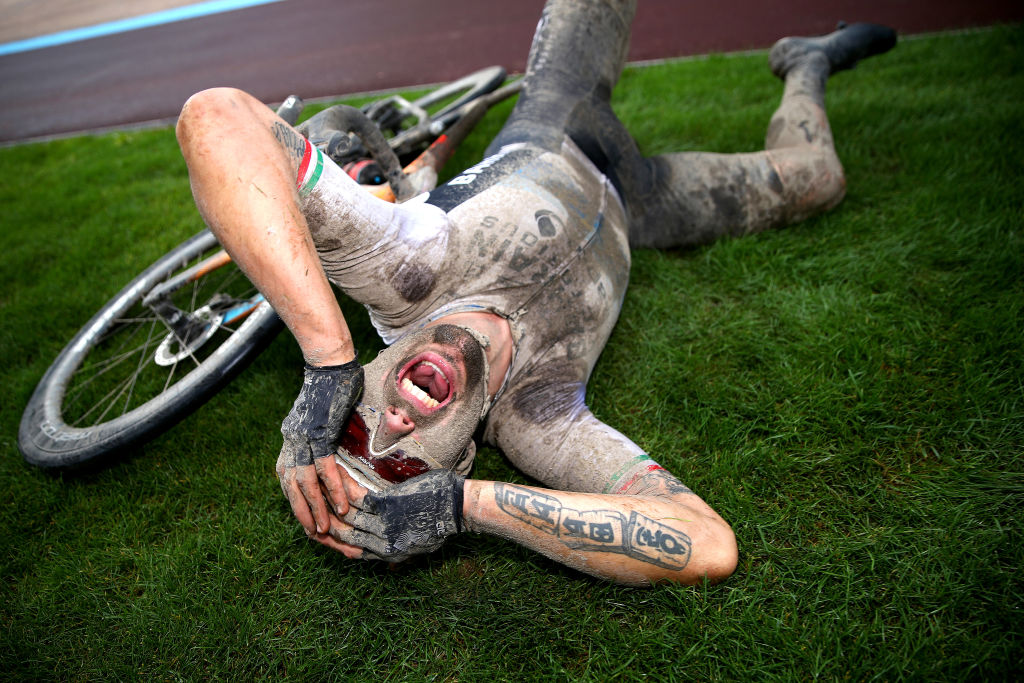
Retirement was forced on Sonny Colbrelli after suffering an unstable cardiac arrhythmia during the Volta a Catalunya in March. Other athletes in other sports are allowed to compete with subcutaneous defibrillators, but Colbrelli recently accepted that professional cycling is very different from football, forcing him to announce that his career was over.
“I say goodbye to cycling and try to do it with a smile for the good it gave me, even if it hurts to say goodbye after a season like last year. That was the best of my career. I learned what life offers and what life takes. But it also gives back in a different form,” he said when he announced his retirement.
Colbrelli has put his family and his health first, the risk of another heart attack cutting short his career when he was arguably at his very best with Bahrain Victorious. He defeated Remco Evenepoel to win the 2021 European road race title and then dominated the rain and pave to win Paris-Roubaix. He dreamed of winning the Tour of Flanders, stages at the Tour de France and much more.
Colbrelli leaves the peloton at just 32. He has been given an ambassador and consultant role at Bahrain Victorious, and a huge wave of support and affection in Italy and beyond has helped ease his personal pain and disappointment. His professional career is over, but he remains enmeshed in the cycling family.
Vincenzo Nibali
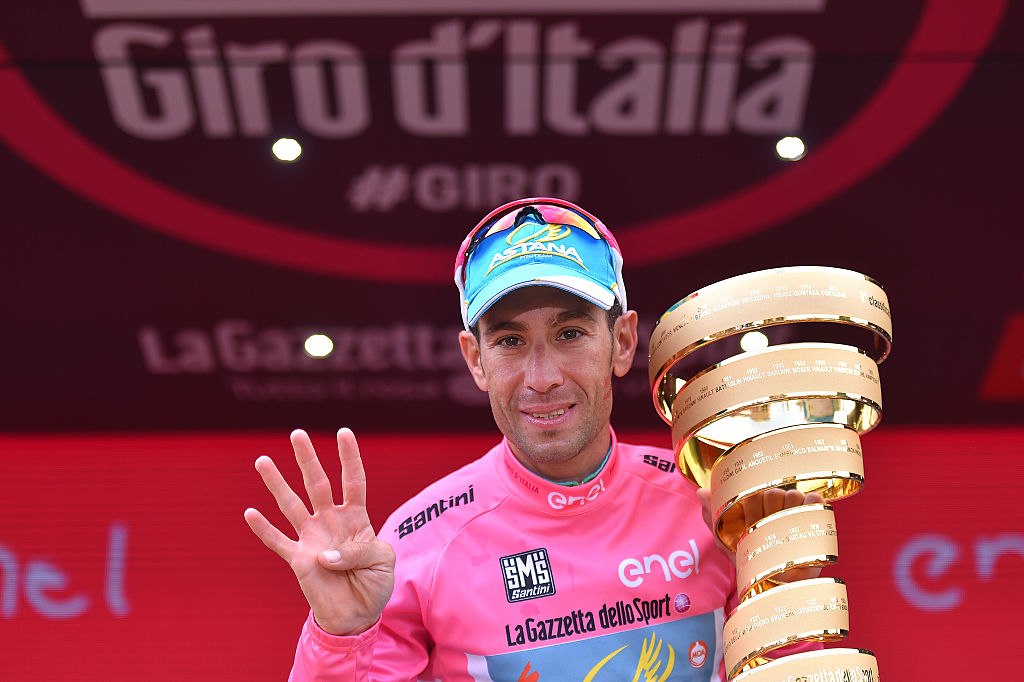
When Vincenzo Nibali retired at Il Lombardia, it marked the end of an era for Italian cycling.
The 38-year-old Shark of Messina won all three Grand Tours during his career, often carrying the nation on his shoulders. Now Italy no longer has a Grand Tour contender, a men’s WorldTour team and there is an ever-smaller presence in the men’s peloton. The Italian women are perhaps taking over from the Dutch, but among the men there is no sign of a new Nibali who can win the biggest races and enthuse the tifosi.
Nibali never had the charisma or garnered the mainstream media attention of Marco Pantani, but he enjoyed a long and successful career that began with Fassa Bortolo back in 2005 and ended with Astana Qazaqstan after 18 years.
He won the Vuelta a España in 2010, the Giro d’Italia in 2013 and 2016 and the Tour de France in 2014. He was admired for his descending skills and natural aggression, which also helped him win Il Lombardia twice and even Milan-San Remo in 2018, with a solo attack over the top of the Poggio and down the descent.
"It’s the right moment to call time on my career. I've been racing long enough," Nibali said in an exclusive farewell interview with Cyclingnews.
"Some people have told me I should take a year off to relax and enjoy myself, but I’m not like that. I don’t want to stay at home and do nothing. I want a new challenge.”
Nibali’s new challenge will be a key role at the new Q36.5 ProTeam managed by Doug Ryder. He will be a brand ambassador for the Italian clothing brand and a key advisor and mentor, his prestige perhaps even helping the team secure a wild card invitation to the Giro d’Italia.
Leah Kirchmann
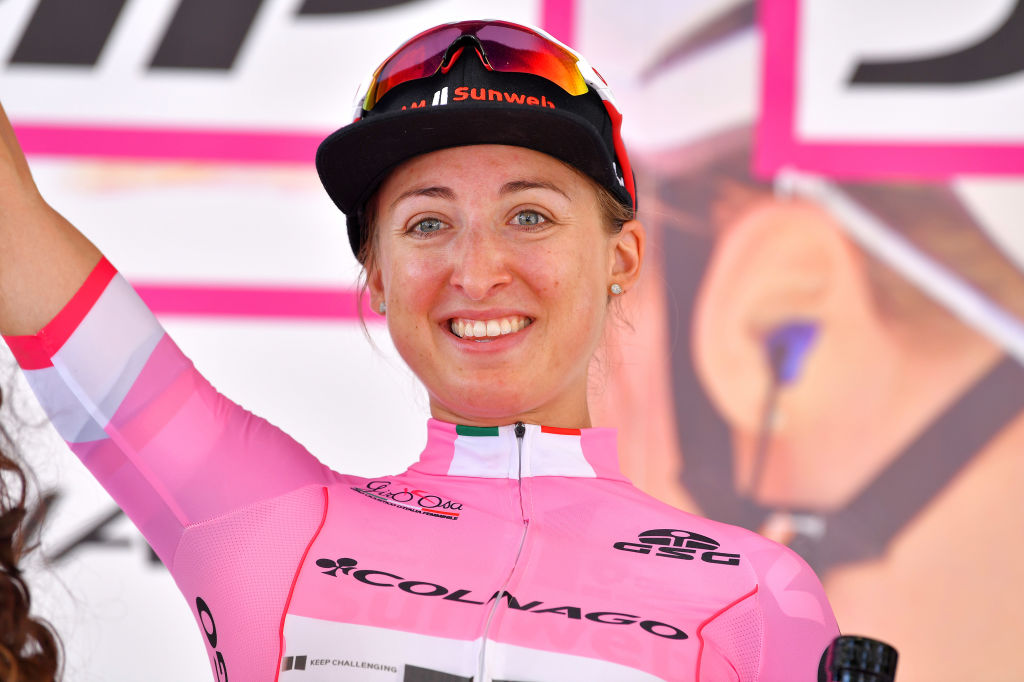
Leah Kirchmann ended a 12-year career at the UCI Road World Championships in Wollongong in what was her eleventh participation at the marquee event with the Canadian National Team.
One of her nation's top performers in professional cycling, Kirchmann finished four times inside the top 10 in the individual time trial. She was also part of the winning Sunweb teams that secured the world title in the team time trial at the 2017 Worlds in Bergen and the bronze medal at the 2018 Worlds in Innsbruck.
She is a multi-time Canadian National Champion in the road race and time trial and has represented Canada at two Olympic Games: Rio de Janeiro in 2016 and Tokyo in 2021.
Her most notable performance was earned as part of the team that won the opening team time trial, netting her the first maglia rosa at the 2018 Giro d'Italia Donne.
A staple at Sunweb and Team DS, Kirchmann also finished second at La Course (2019), third at RideLondon (2016) and PostNord Vargarda (2017), second overall at Festival Elsy Jacobs (2021), third overall at the Tour of Norway (2019) and Tour of Chongming Island (2016), and fourth overall at both Challenge by la Vuelta (2018) and Women's Tour (2017).
She has won a total of 12 races throughout her career, alongside being an invaluable team member who was always willing to work for others: helping her team to 40 victories since 2016.
Niki Terpstra
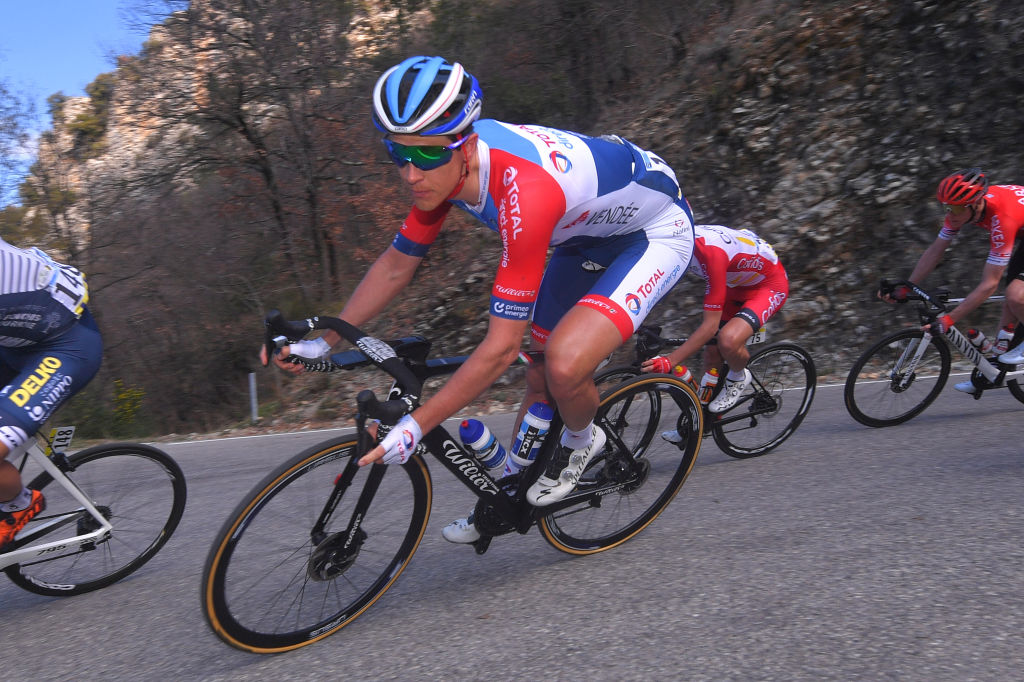
Niki Terpstra isn't completely settling away from competition but is calling his road racing retirement and making the increasingly well-trodden transition to gravel.
The Dutchman hangs up the road wheels as a winner of both the Tour of Flanders and Paris-Roubaix and, is therefore, one of the top Classics riders of the 21st Century. Starting his career with Milram back in 2007, Terpstra took time to get going by the standards of modern-day stars but started making an impact in the major Classics once at QuickStep in 2012 before slipping clear to win Roubaix with a canny late solo move in 2014.
He was twice on the podium at Flanders before winning it in 2018, when he was untouchable during the Flemish Holy Week, winning E3 alone in a portent of what was to happen at De Ronde. A podium at Roubaix closed out the spring of his career.
Looking back, that was the peak, and Terpstra's career has fizzled out in the past few years. His value was sky-high in 2018; he made a surprise move to second-division squad TotalEnergies and has had almost no impact, albeit with the caveat of some horrible crashes.
Terpstra's legacy is a complex one, as he developed a reputation as something of an individualist. "Whoever says that doesn't know anything about cycling," he retorted in 2018. A mixture of Dutch directness and smirking self-confidence perhaps didn't win him so many fans in a Belgian team that featured home stars like Boonen and Gilbert, but QuickStep boss Patrick Lefevere agreed that this characterisation was "completely wrong".
Terpstra leaves the pro road peloton after 16 years but has already dipped his toe in the gravel world, and with some success. It may just be a coincidence that this is a much more individualistic discipline, but racing off-road events around the world should occupy most of his time in 2023.
Alex Dowsett
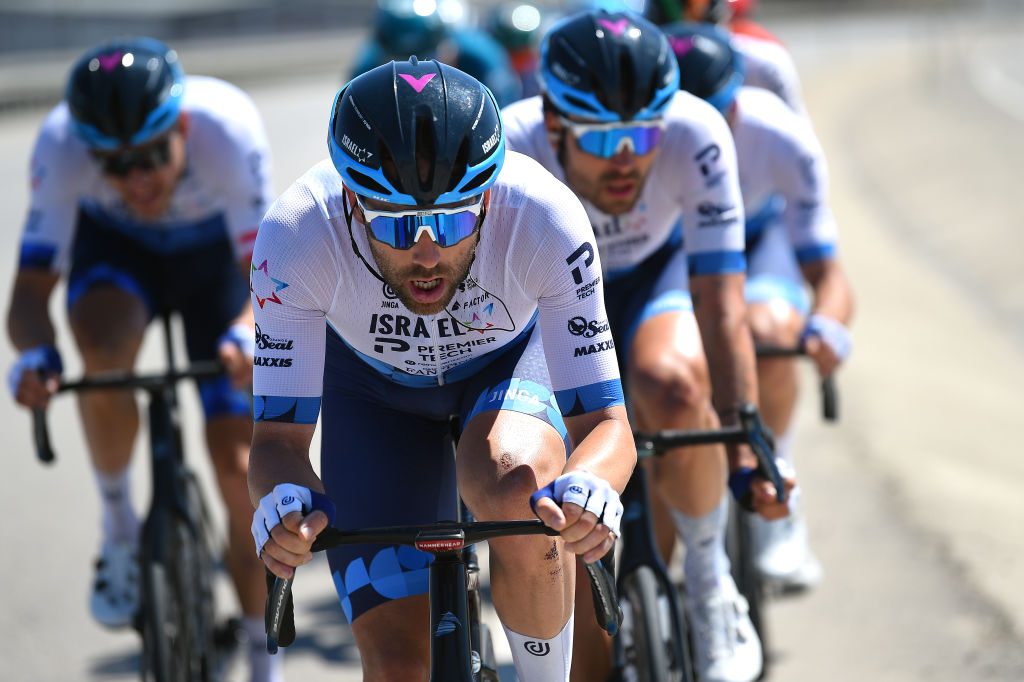
Alex Dowsett set out this year with the idea of carrying on for a final couple of seasons, but it gradually dawned on him that he was ready to step away. As he himself put it, his mindset switched from "the want to win something bigger than I previously won" to "a state of being happy with what I've achieved".
Dowsett achieved a lot over the course of a 12-year career, although the perspective is perhaps skewed by an early pinnacle. At the 2013 Giro d'Italia, a 24-year-old Dowsett stunned the world with a storming victory in the 55km stage 8 time trial, beating none other than Olympic champion and Tour de France champion Bradley Wiggins. Dowsett struggled to meet the expectations, which went through the roof that day. He didn't win another Grand Tour time trial, and his only other WorldTour TT scalp came at the 2016 Tour de Pologne. Still, there was plenty to write home about, not least breaking the UCI Hour Record in 2015, even if it didn't stand for long. He won the British national time trial title six times, and there were regular reminders of his class - 5th and 6th in the 2018 Giro TTs, then 5th at the World Championships in 2019.
But it wasn't all time trialling. Dowsett ends his career with two Giro stage wins, the second coming from a breakaway in 2020 and earning him a new contract at the difficult end of a COVID year. It was perhaps the most emotional moment of his career.
Another one would be his second Hour Record attempt in 2021, one that underlined there was more to Dowsett than results. He fell short of Victor Campenaerts' benchmark but raised over £55,000 for Haemophilia sufferers, a cause he has championed throughout a career in which he never let the disease hold him back.
As for the future, Dowsett has made it clear he's not leaving the sport, merely stepping away from top-level road racing. He is already well-placed for a transition through the YouTube channel he's been building in the past couple of years, while he has hinted at stepping into gravel and also using his self-confessed aero nerdiness to work with other riders and teams.
Alejandro Valverde
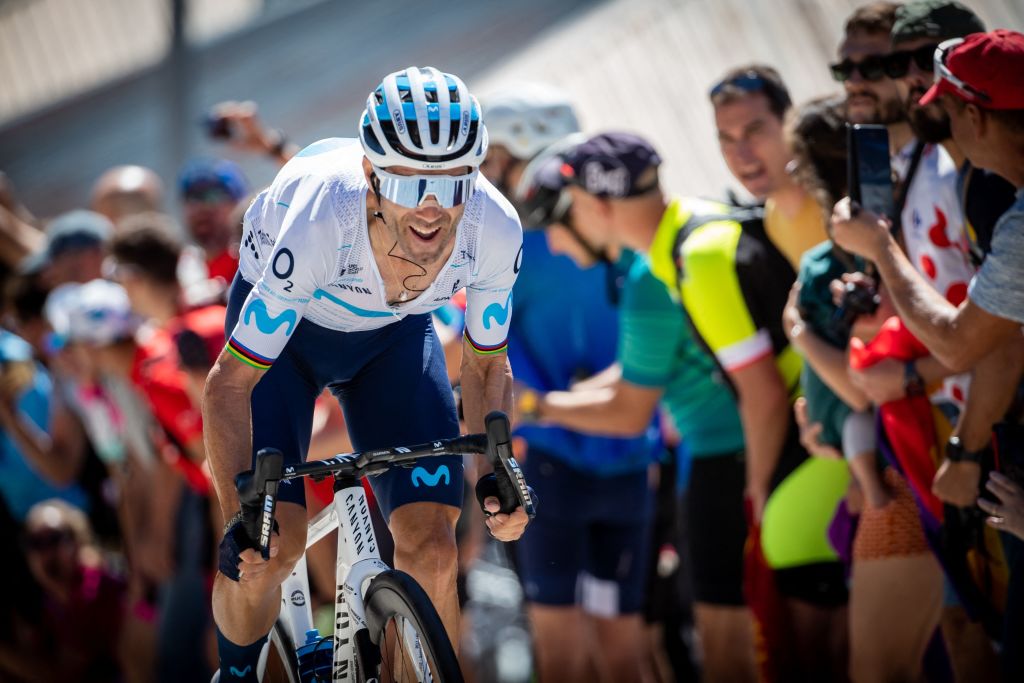
The moment when it finally sinks in for most Spanish fans that Alejandro Valverde has retired will likely not happen this season or even this year. Rather the penny will probably drop on the evening of January 10th, when the 2023 Vuelta a España route is published and after two decades, Valverde is no longer a potential candidate for at least a stage win and, very often, the outright victory in his home race.
Few riders have established such a close connection with a single race as Valverde and the Vuelta. Being Spanish and racing for Spanish teams, first Kelme for three years and then Movistar in its various guises for the remainder, combined with the sheer length of his career, 21 years in total, were obviously major factors in maintaining that relationship. But the results he carved out in that time in the Spanish Grand Tour, including the overall victory in 2009, three second places, three third places, and 12 stages combined to place him in a Vuelta league of his own.
But for all his identification and consistently high performances in the Vuelta – comparable to that of Raymond Poulidor in the Tour or Felice Gimondi in the Giro d’Italia – Valverde’s versatility and ambition in other races were never lacking, either. Among his 133 victories, the World Championships in 2018 and four wins in Liège-Bastogne-Liège are undoubtedly among the most famous. But his five wins in Flèche Wallonne – an all-time record – and victories in mountainous or hilly week-long stage races ranging from Vuelta al País Vasco to the Criterium du Dauphiné and Volta a Catalunya represented other major landmarks.
The one major downside of his career, his involvement in the anti-doping sting Operación Puerto and the subsequent ban, cannot be ignored, either. But for his fans, that should not overshadow that when Valverde returned to racing in 2012, he showed no sign of losing his focus or his ambition, nor yet his jaw-dropping win rate.
Spain’s obsession with the Tour de France and Grand Tours in general arguably pushed Valverde to focus too hard on July at times when the Vuelta clearly lent itself better to his talents. But for all that, Valverde still took no less than four Tour de France stages, in the Alps, the Pyrenees and on two tricky uphill finishes, and that ability to switch targets and stay in the game was what gave Valverde an even greater edge on his rivals, time and time again.
Nobody could ever question Valverde’s dedication to his sport, eking out his career all the way through to 42 and still able to do battle with the favourites in his final week of racing this autumn in the Italian Classics. “I feel like crying, but the time has come,” he told Spanish sports daily AS in his last ever interview as a pro. He is now going to stay with the Movistar team, his squad since 2005, for the foreseeable future, but as part of the overall management, acting as a link between the riders and management level.
Tanja Erath
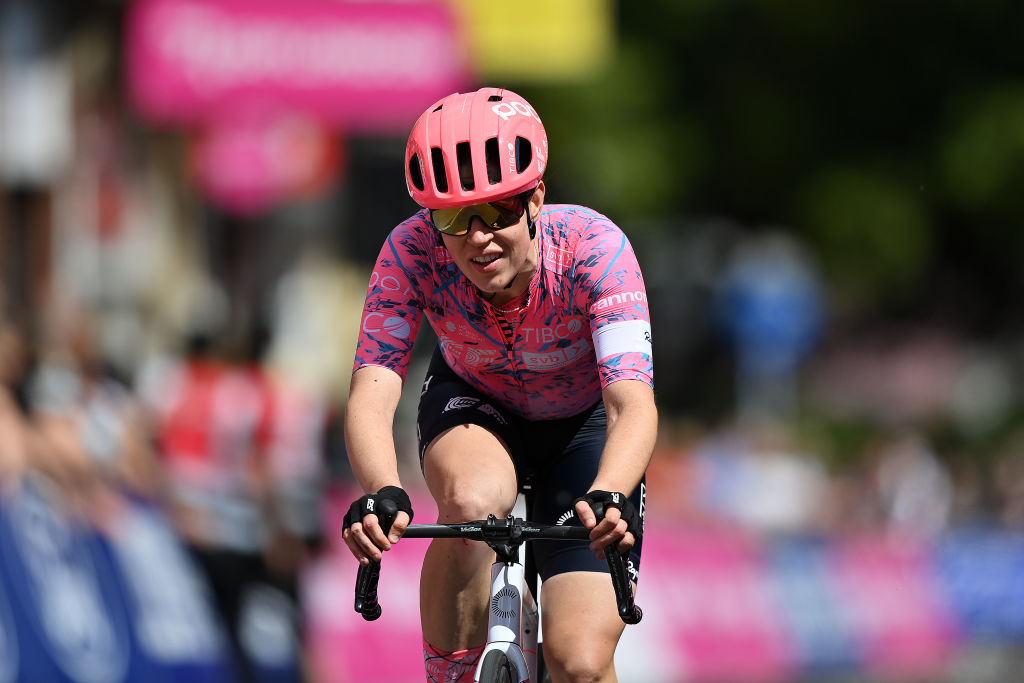
Tanja Erath came into the sport in the most unexpected way after winning the Zwift Academy contract with Canyon-SRAM and leaving behind her newly started career as a doctor. Her first season in the pro peloton was in 2018, with a fairly smooth transition from the operating theatre into the world-class peloton.
A former triathlete with the work ethic and focus of a doctor who performed nine-hour-long surgeries, Erath excelled with Canyon-SRAM. She integrated into the team and developed in her role as a domestique, even securing two top-10s in her first season. She renewed with the outfit for the next two seasons and improved her strength and skills on the bike with nine top-10s.
She spent her final two seasons with EF Education-TIBCO-SVB, but a severe crash at the Women's Tour at the end of 2021 left her recovering from injuries to her vertebrae, ribs and collarbone.
After a long recovery period, Erath returned to race her fifth and final season in 2022 but noted the difficulty she faced after the accident. “To the majority, it won’t come as a big surprise as I have been quite open with my struggles this season, especially my fear and my inability to cope with the mental struggle of being back in the peloton after a severe crash," she said.
Erath said she met her comeback goal of competing and finishing at the Paris-Roubaix Femmes in April, and while she still has a love for bike racing, she said there was one key feeling missing in her career; joy.
"Don’t get me wrong: I am still in love with cycling, and I still love riding my bike more than anything. It’s my constant in life and has been since I am a kid. But I want to rediscover my joy for racing. I don’t have to, but I want to. But the thriving and fast-growing Women's WorldTour peloton is not the right place to do this," she said.
"I have probably one of the best jobs in the world to go back to, doctor, and 5 years of great memories: I travelled the world, I raced my bike in places I’ve never even dreamed of, I met amazing people and my childhood heroes, I made friends! I moved to another country and moved back again, I shot adverts and films, started a podcast, I learned a lot, I fell in love…
"I am going to miss a lot of it, but it’s not a goodbye, it’s just a 'See you someplace else.'”
Richie Porte
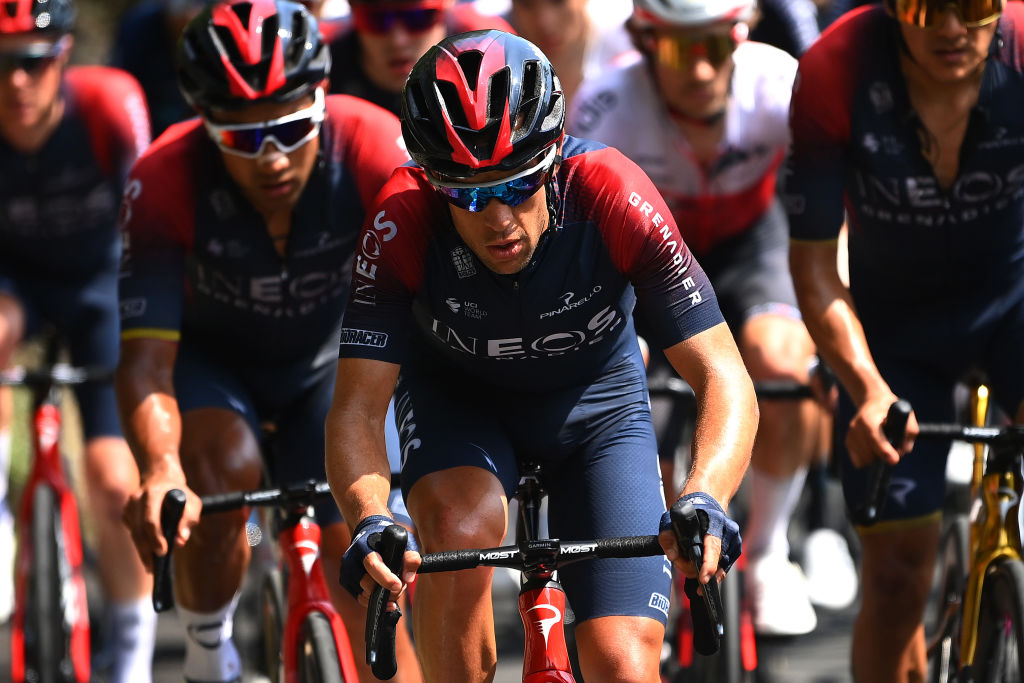
“I’m sure on the last stage, it will be quite emotional," Richie Porte told us at the start of the Tour of Britain in September, his final bow as a professional. Little did he know, he would never ride it.
The death of Queen Elizabeth II brought the race to an unexpected halt three days shy of the finale on the Isle of Wight. Porte didn't know setting off that morning, but the 186.8km journey from West Bridgford to Mansfield was to be the final act of his 13-year career.
It was already a fairly low-key farewell for one of the world's top riders over the past decade, but this drained any impact. It also came after a pre-farewell had already been dampened as Porte was forced out of the Giro d'Italia, his final Grand Tour, through sickness with two days to go.
Porte, in imperfect fashion, brings the curtain down on a career that made him one of the top week-long stage race specialists. He won Paris-Nice and the Tour Down Under twice, along with titles at the Critérium du Dauphiné, Tour de Romandie, Tour de Suisse, Volta a Catalunya, and Volta ao Algarve. His success raised expectations for the Grand Tours, but for years he never seemed to be able to stretch that form over three weeks.
At Sky, he was one of the world's top mountain domestiques, helping the team win three Tour de France titles between 2012-2015. He left for BMC Racing and sole leadership in 2016 but his Tour hopes were ended by heavy crashes in 2017 and 2018. Moving to Trek-Segafredo in 2019, he set the record straight and put his demons to bed by finishing on the podium of the Tour in 2020, a result he and his nation celebrated like a victory.
The final year may not have panned out as planned – and it's worth noting he was still fourth in a stacked Tirreno-Adriatico field – but in some ways, Porte's career was already complete. Future plans are not yet known, but he's set to return to Australia before deciding on the next steps.
Mikel Nieve
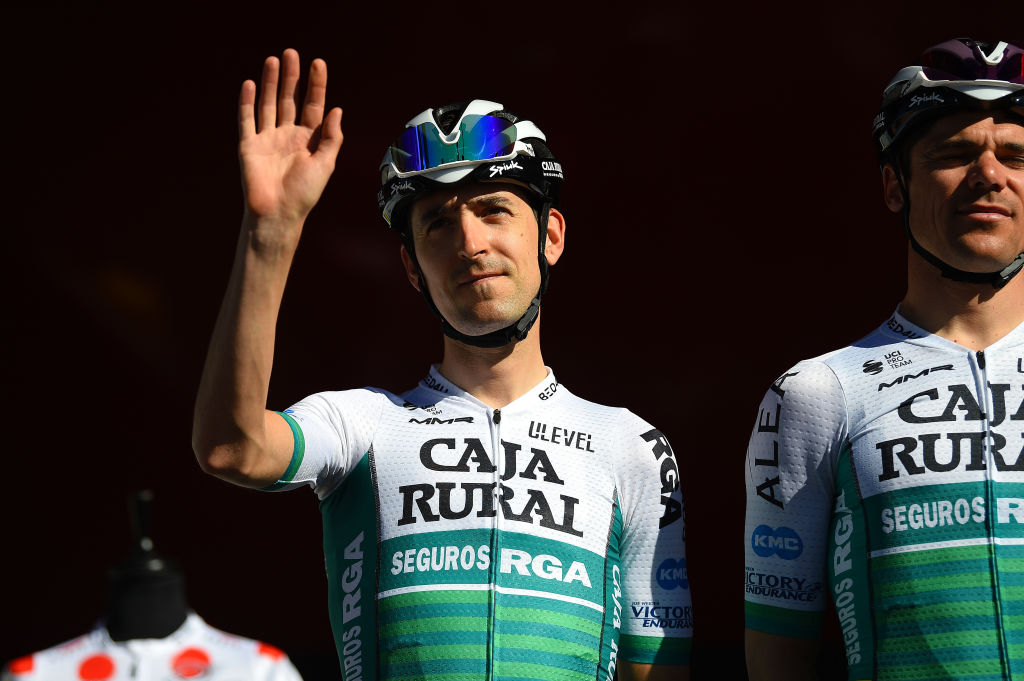
While retirees Vincenzo Nibali (Astana-Qazaqstan) and Alejandro Valverde (Movistar) were soaking up the limelight for one last time this autumn at Il Lombardia, reputed climber Mikel Nieve (Caja Rural-Seguros RGA) quietly exited from the sport in the same Italian Monument. And unlike Nibali and Valverde, the rider once voted World’s Best Domestique by Cyclingnews readers never saw the finish of his final race, either.
A crash after some 100 kilometres caused by a loose bidon saw the rider from northern Navarre leave Il Lombardia in an ambulance with a broken collarbone. As Nieve put it afterwards, “obviously, I’d have liked to have ended it all in a different way, but cycling is like that, and you have to look ahead. My cycling career ends here, and I’m leaving proud and satisfied.”
For a rider whose role for years consisted essentially of guiding his leaders as far as possible in the mountains and then making it to the finish with as little fuss as possible, that kind of low-key departure and unsentimental approach to his last race was, in some ways, appropriate. After all, Nieve was a rider both widely praised for his dedication and spirit of self-sacrifice in the sport, with a steadfast refusal to grab the limelight.
Yet crashing out of Il Lombardia on a day he’d have been fully justified in racing for himself also highlighted the injustice of a sport where the winner grabs nine-tenths of the attention despite having to rely on his teammates for laying so many of the foundations of his or her success. It was telling that Chris Froome, who depended heavily on Nieve in the 2016 and 2017 Tours de France as well as when he took the 2017 Vuelta, was quick to thank Nieve after he announced his retirement from the sport, calling him on Twitter his “best teammate ever”. But there were plenty of other team leaders who could have done the same.
A pro since 2008, Nieve’s earliest years in Euskaltel-Euskadi saw him briefly flirt with the possibility of a bigger GC role. Even before the Basque team had folded in spectacular style mid-way through the 2013 Vuelta, over the summer, Nieve had already been snapped up by Sky for the following season, where his role as a top domestique would be all but set in stone. He remained with the British team until 2017 before moving on to a similar role at Mitchelton-Scott, where he worked principally for the Yates brothers and Esteban Chaves.
“For me, what matters is the leaders remembering to shake your hand at the finish and say 'thank you,' afterwards,” Nieve told Cyclingnews when he was voted ‘top domestique in the world' by the readers.
"If they are grateful like anyone would be, for what you’ve done and ensure there’s a good atmosphere in the team, that’s all I ask of them, nothing more special than that.”
Nieve did at times emerge from the shadows. His two stage victories in the Giro d’Italia, as well as the king of the Mountains title in 2016, were both memorable ones, most notably in 2011 when he won a seven-hour mountain stage with 6,300 metres of vertical climbing with an advantage of nearly two minutes over three Giro winners – Stefano Garzelli, Alberto Contador and Michele Scarponi.
He had no regrets; he told Cyclingnews a few years back about choosing to head for a more specialist role: “Okay, I won a stage or two in a Grand Tour. But the big objectives in the teams are the Monuments and the Grand Tour GCs, or podiums at least, and I don’t have the talent to do that. My time trialling isn’t good enough, and I can’t beat the top guys on the climbs. But as my strong point is in the mountains, that’s where I’ve ended up being a specialist.”
Nieve’s last year as a pro with Caja Rural meant he completed one final full circle of his career, finishing racing in the same team from his home region of Navarre, where he had been a top amateur from 2003 to 2007.
Patrick is a freelance sports writer and editor. He’s an NCTJ-accredited journalist with a bachelor’s degree in modern languages (French and Spanish). Patrick worked full-time at Cyclingnews for eight years between 2015 and 2023, latterly as Deputy Editor.
